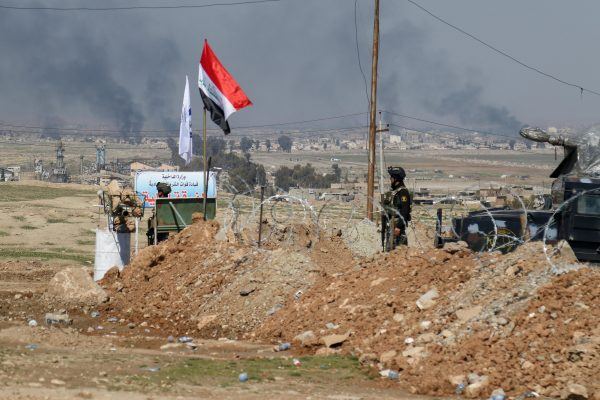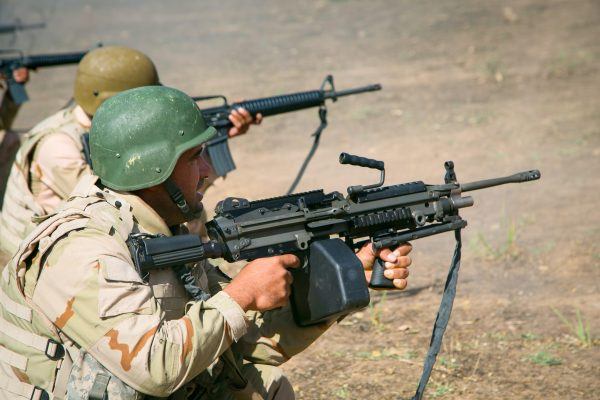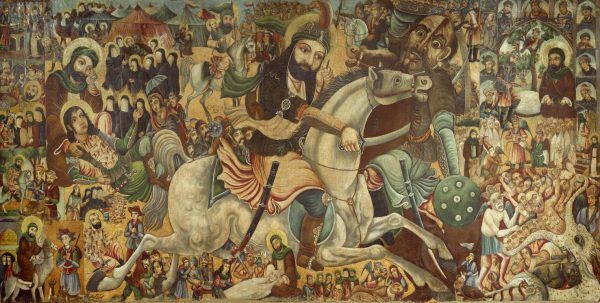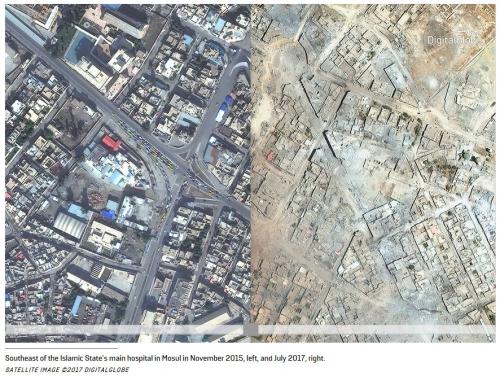With reports of the Islamic State (IS aka ISIL or ISIS) making a come-back in some regions of Iraq and Syria, and expanding in other parts of the globe, we should look back on what made the anti-IS coalition successful. The U.S. must partner with local forces who want to win as they define it. If our local partner’s objectives are significantly different than ours, American policymakers must either redefine our goals, find a new partner, or not get involved. America’s local allies should and must use ruthless tactics and be provided American military advisors and air support to destroy their enemies. Only then can our local allies crush any terrorist or insurgent groups.
The anti-IS coalition supported by the U.S. and several European nations took only four years to defeat approximately 40-50,000 IS fighters. IS held a territory the size of Belgium and was armed with an assortment of randomly captured U.S. and Russian weapons. Thankfully IS had no air force, moderate to poor Internet connections, and no allies. Otherwise, it would have taken eight years. The four-year timeframe to defeat IS was only made possible because the U.S. had the advantage of IS having to fight on all fronts. To the west, IS faced the ruthless forces of Syria’s dictator Bashar al-Assad and his Russian backers bleeding them with barrel bombs, airstrikes, and Russian special forces. Iranian-backed Shiite militias from Iraq pushed IS from the south with the Iranian Revolutionary Guards Corps’ (IRGC) Quads Force advisors. From the east, U.S. and European-backed Kurdish forces and the Iraqi army bombed IS and took major cities such as Mosul. Even with this “Coalition of the Vengeful” it took four years to defeat IS. That seems like a long time to overcome such a small army, but for the U.S. military four years is actually an improvement.
Money Does Not Equal Motivation
The U.S. has made several attempts at rebuilding, rearming, training, and fighting alongside local military forces over the past 18 years of fighting the War Against al-Qaeda and Friends (aka the War on Terror), with marginal success at best. The Iraqi army and police forces have been trained, rebuilt, armed, funded, and advised by the U.S. since 2004 but still struggles to hold territory and were routed by IS’s much smaller and poorly equipped force in 2014. All this U.S. money did not buy hatred towards IS; the anti-IS coalition’s organic desire to destroy the enemy was generated by IS itself. The two critical factors of our local allies’ success were a burning desire to get revenge against IS and the local economic incentives of total war.

Local Forces Must Have the Will to Fight
The will to fight is a primary factor in all military victories no matter the composition, strength, and resources of the opposing forces. Napoleon Bonaparte’s quote “in warfare the morale is to the physical three to one” is still true today. Why did the anti-IS coalition have such a strong will to fight IS? Was it to gain the moral and ethical high ground over IS or to make Iraq safe for democracy? Maybe it was to establish and advance the causes of human, LGBTQ, and women’s rights in Syria and Iraq? Could it have been to bring economic opportunity, income equality, social justice, an end to IS’s slave trade, or to destroy the patriarchy? No, of course not.
The main motivational factor behind the anti-IS coalition’s will to destroy their enemy is far easier to understand: revenge. Revenge built from sectarian hatred and historical grievances is the primary motivational factor for the current wars in the middle east, and the anti-IS coalition is no different. The Kurdish Self Defence Forces (SDF), Peshmerga, Yazidi, and Christian militias had an axe to grind for the atrocities committed by IS among other things. These groups also had not forgiven the Sunnis and Baath Party elites that made up IS’s leadership for atrocities committed by Saddam Hussein.

Since sectarian hatred was the fuel that drove IS’s rampage, that same fuel has been used by the Kurds, Christians, and Yazidi to combat IS. The justifiable hatred for IS that these American-backed groups held cannot hold a candle to the hatred of IS felt by the Iraqi and Iranian Shiite Muslims. The Shiite and Iranian-backed Popular Mobilization Forces (PMF) have a sectarian blood debt against the Sunni’s in IS for attacks on civilians made during Iraq’s civil war (2004-2011), to include al-Qaeda’s actions during that time. Atrocities committed by the Sunni terrorist group IS were added onto the 1339 years old list of Sunni vs. Shia debts. The short-term revenge for the Iraqi army, which is almost entirely Shia Arabs, was the execution of Iraqi soldiers when IS took Mosul and other parts of Iraqi territory.

Like it or not, revenge, sectarian hatred, and disgust with the actions of IS are the real motivators that have built the will to fight IS by all sides, to include the Russian, American, and European militaries. This analysis certainly does not conform to some reader’s, the western media’s, or academia’s high-minded principles or values when it comes to military advising or counter-insurgency operations. Then again, how many academics, policymakers, and journalists have traversed (or were willing to) the IED-laden roads to learn how and why our allies wanted to destroy the caliphate? Not many, and thankfully all of our local partners are smart enough to spit out whatever political BS the random American in front of them wants to hear to get the weapons and support they need. I should know. I have advised the Kurds, Saudis, and Afghans, and once you earn their trust, they sound far more reasonable when it comes to war than most of the current students at George Washington’s Elliot School of Foreign Affairs. But can you really blame our allies for using the same political BS that our own military commanders spouted to them in public during the second Iraq War to gain their support? IS itself successfully built the anti-IS coalition’s will and motivation to seek battle proactively, without U.S. money or international relations political BS.
An Economic Incentive to Defeat IS
Wars of conquest are not a thing of the past, and the economic incentives from capturing or recapturing land are real and long term to our local partners. The Anti-IS coalition had incentives to recapture territory from IS for their own respective factions’ benefit. The Sunni tribes that assisted the Shiite PMC, Kurdish SDF, and Iraqi army were recapturing land and property IS confiscated, and they get to keep IS supporters’ property. The Iraqi and the Kurdish autonomous government lost millions in revenue from oil, taxes, and trade from areas overrun by IS. The Iraqi government and Kurdish forces almost went to war in 2017 over territory recaptured from IS around the Kirkuk oilfields. For the Iranian-backed Shiite PMFs, the spoils of war were more in looting and the treasure captured from IS and Sunni civilians. The incentives for plunder mixed with a desire for revenge also led the usually “morally upright and professional Iraqi army” to maybe even take a few IS gold coins that they found in the rubble.

The spoils of war for our allies’ ground soldiers are much more lucrative, especially when compared to the local wages; that is why they still practice stripping IS fighters of all their valuables and sell them. Land redistribution, property transfers, enslavement, and looting happened under IS. The undoing of these actions will generate more wealth and grievances for whoever captures the territory. In warfare it is still true that “to the winner goes the spoils” (unless you are the United States of America, who’s oligarchs, plutocrats, and policymakers decided that “if someone else breaks it American taxpayers bought it”). For all the local allies, to include the Iranian- and Russian-backed ones, the economic incentives to defeat IS were just the icing on the cake of seeking revenge for crimes IS committed. Wars need and make money, but only for the victors, especially when the westerners are paying for all the fuel, bombs, intel, media coverage, surplus vehicles, and outdated weapons. And if they play their cards right all those billions of U.S. taxpayer dollars to rebuild their country.
U.S. Support Can Be a Burden Or Benefit Depending On the Day
The primary way the U.S. fails its local allies is with a convoluted set of procedures to provide air support to our allies. Over the past 18 years of failed counter-insurgency doctrine U.S. civilian lawyers, military lawyers, and civilian policymakers created a rat’s nest of convoluted rules that limited our allies and U.S. warfighting capabilities. By far the biggest problems with U.S. forces advising local partners are the self-imposed restrictions on our air support. The most powerful military force in the world has so many subjective rules of engagement, multiple interpretations of the Law of Armed Conflict (LOAC), and a complete disregard for the parts of the Geneva Convention that would help the U.S. military, rendering our military support highly restricted at times.
Under the Obama administration, the rules to employ airstrikes in Afghanistan and Iraq resembled the image below. Precision-guided munitions (with a 95% accuracy rate) can only be used when no civilians are present within one kilometer and no civilian buildings are within 500 meters of the target. Oh, and also a human operator must have observed the entire impact area with a drone for 24 hours for a pattern of life. Then the American advisor’s commander must seek approval from their next-level commander, and the attached Judge Advocate General (JAG) must approve of the commander’s support for the strike. Then finally the airstrike is approved, unless something changes. Seems simple right?
Thankfully the rules for providing air support to our local allies were made reasonable during the Trump administration. The unrestricted U.S. air support was a crucial factor in the anti-IS coalition’s significant progress from 2017-2018, as you can see in the following image.

Why Does the U.S. Military Constantly Get Advising Wrong?
The answer: U.S. policymakers still do not understand military advising, Islam’s sectarian conflicts, nationalism, tribalism, or much about how our allies think. Being sent to a foreign land to fight for the freedom of a foreign population, and at the behest (pay) of another foreign power is against everything tribal Iraqis, Yazidi, and Kurds have been taught. You might not know this, but most Kurds do not see Sunni or Shiite areas of the made-up country of Iraq as “their country.” The Iraqi Sunni and Shiite felt the same about “Kurdistan.” Tribal societies always fight harder for their own people, land, religion/sect, nation, and family unless you are going to let them conquer and keep the area. Imagine how fiercely and tenaciously you would expect Americans to fight for their home soil? I only wish the senior U.S. military and civilian policymakers would have learned this after 18 years of war or saw the original movie “Red Dawn.”
















